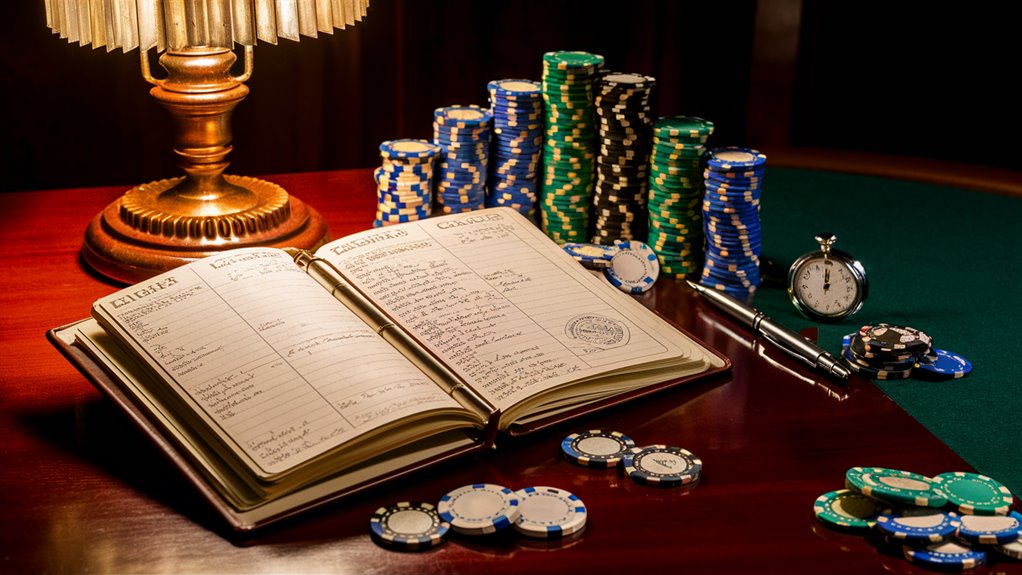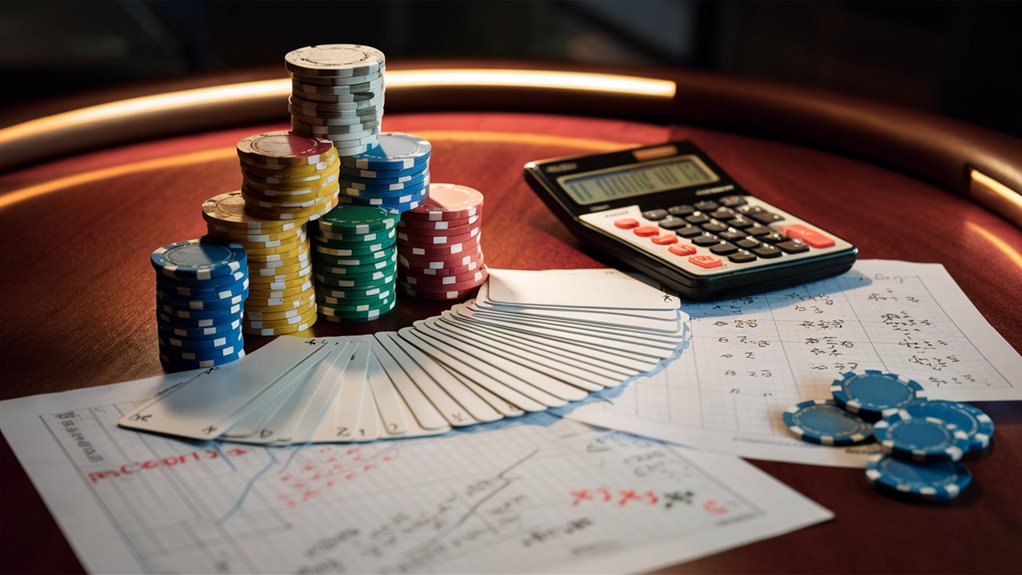Winners’ Group: How to Manage Your Money

Key Ways to Handle Money Well
Managing money well sets apart top players from the rest. A clear plan for how to use money builds the base for long wins. The best split is this:
- 50% Core Base
- 35% Active Use
- 15% Big Chances
Keeping Risk Low
Having 100+ units to bet with makes sure you have enough money, while only risking 1-2% per move. This safe method keeps your money safe when things go down and helps you grow over time. Using solid stop-loss points stops big money losses.
Watching and Making Better
Writing down every trade is key to pro money handling. Keep track of needed details like:
- When you got in and out
- Money made after risks
- How big each bet was
- Wins and losses
Putting Wins Back In
Use a strict 75/25 way to put wins back to balance growth and keeping money safe:
- 75% back into the system
- 25% kept as firm gains
- all types of betting game
Math for Long Wins
Lasting well comes from using proven ways to keep and grow money. These math ideas form a strong setup for steady play and more money over time.
Getting Money Handling Right
The Base of Good Betting
Handling money right is key to a solid betting plan, making sure you can keep playing and making money.
Know Your Betting Money
Your set betting money must stay away from other money needs like daily costs or emergencies. Keeping them apart helps you make good choices when times are tough.
Needed Money Math
What to Think About for Money Sizes
- Game ups and downs
- How much to bet each time
- How much risk you can take
To last, keep at least 100 units for usual casino games. Poker money needs are higher, often 300+ units, because of bigger changes and tougher fights.
Watching and Checking
Tracking every session is key to fine-tuning your money use. Write down must-know facts like:
- How much you started with
- What games you played
- How long you played
- End results
- Win and lose trends
Checking Risks and Money Sizes
This detailed info helps adjust your plans to keep and grow your money. With these checks, your money turns from just cash to a well-tuned tool for reaching your play goals.
Step by Step on Managing Risks and Size
Getting Risk Handling Right
Risk checking and sizing moves are core to successful trading plans. Pros know keeping money safe means planned risk math and careful move sizes.
Best Risk Limits
The main rule to keep money safe says to limit what’s at risk to 1-2% of all trading cash per move. This careful way keeps money safe in shaky times.
How to Size Your Moves
Math for Risk
Sizing your move needs three key parts:
- Where to jump in
- Where to set stop losses
- How many shares or contracts
Using the Formula
Figure out move size with this:
”’ Move Size = Max Risk / Stop Loss Gap ”’
Putting It to Work
This number play keeps risks the same across all trades while making sure you don’t lose too much.
Risks vs. Wins
Running trades needs you to think about how stop losses line up with win goals. Winning traders use at least 1:2 risk-to-win, so each good trade makes up for more than one bad one.
Strong Loss Limits in Trading

Basics of Risk Handling
Clear loss caps block big drops in money. Setting https://maxpixels.net/ top losses you’ll take builds a plan that keeps trading money safe. Picking caps as set shares of total money, not just any number, means risk control can grow.
Using Layers of Loss Rules
Per-Trade Stop Losses
Manage risk per move by setting firm 1-2% stop losses of all trading money per trade. This number method stops one bad move from hurting all your money.
Daily Loss Tops
Picking a max 5% daily drop rule helps keep safe from adding losses. Once hit, it stops all trades that day to keep you from trying to win it back when upset.
Checks Each Month
Monthly loss rules of 15-20% are a last safety net. They make you pause and check your plan when hit.
More Risk Tips
Writing out loss rules in a detailed trade plan and using auto stop orders keeps you strict. Changing move sizes at 50% loss cap adds another layer of safety.
Keeping Good Trade Records and Performance Checks
Needed Trading Info Writing
Full trade tracking and planned record-keeping are key to seeing how well your trade plans and risk checks are doing. Detailed trade notes let you look at what works and follow rules. By writing down each move, traders spot trends and make better choices.
Info Points to Write Each Trade
Write down for each trade:
- Prices when you got in and out
- How you sized your moves
- Profit and loss from each move
- Why and how you made the move
- Market ups and downs
- How you felt
Looking at Stats and Past Moves
Using top tracking tools through special journals or software shows key success numbers:
- How often you win
- Money made per trade
- Biggest money drops
- Money made for risks taken
- How good your strategy is
Usual Money Handling Errors
Common Money Handling Mistakes in Trading
Big No-Nos in Move Sizes and How Often You Trade
Good money handling is key to good trading, but many make big slips. Mistakes in how big your moves are and trading too much are big problems. Too much trading puts too much money at risk, making it more likely to lose it all.
Tips on Risk and Setting Stop-Losses
Being firm on where to stop losses is a big part of smart trading. Good traders set and stick to clear exit points, not letting feelings sway them. Changing how big your moves are must match how much money you have now, making you change sizes as your money changes.
More Risk Tips and Keeping Money
Risk from doing the same bet several times can hurt when all trades go the same way. Spreading out moves lessens risks of big joint losses. Keeping enough money ready is key for taking good chances and getting through bad times. The main idea is: Keep your money safe before trying for big wins in steady trading.
Tips for Good Risk Handling
- Stay firm on move limits
- Set must-follow stop-loss rules
- Watch how all your trades link
- Keep enough money ready for chances
- Change move size as your money changes
Growing Money Over Time
Plan for Steady Money Growth
The plan for steady money growth uses a proven three-step way: keeping money safe, calking risks well, and planned bigger moves.
Here’s a good way to split your money:
- 50% solid base
- 35% active use
- 15% for bigger chances
Getting Move Sizes and Risks Right
Long growth needs you to stick to strict rules on how big to make moves. Key risk points include:
- Max 2% risk per single move
- Total risk under 6% for all active moves
- Keeping money safe in shaky times
- Planned use of chances
Making Money on Money
Building wealth needs using a good win reinvestment way:
- 75% profit back in play
- 25% taken out smartly
- Tracking wins for risks using Sharpe ratio
- Watching biggest money drops
- Changing move sizes as money changes
This careful way puts controlled growth and planned risks first, setting up for steady market wins and long money making. Changing move sizes stays in line with how your money grows, keeping risks same while bettering win chances.


